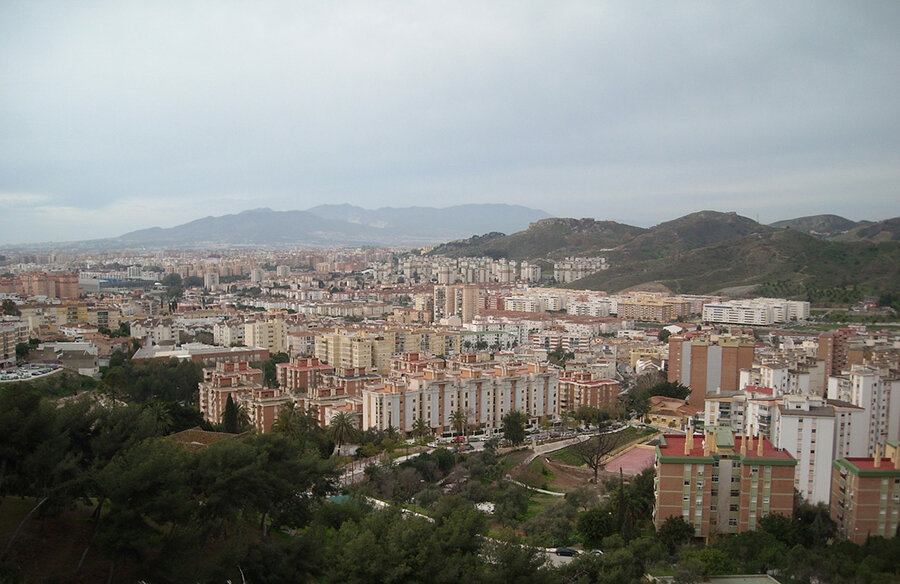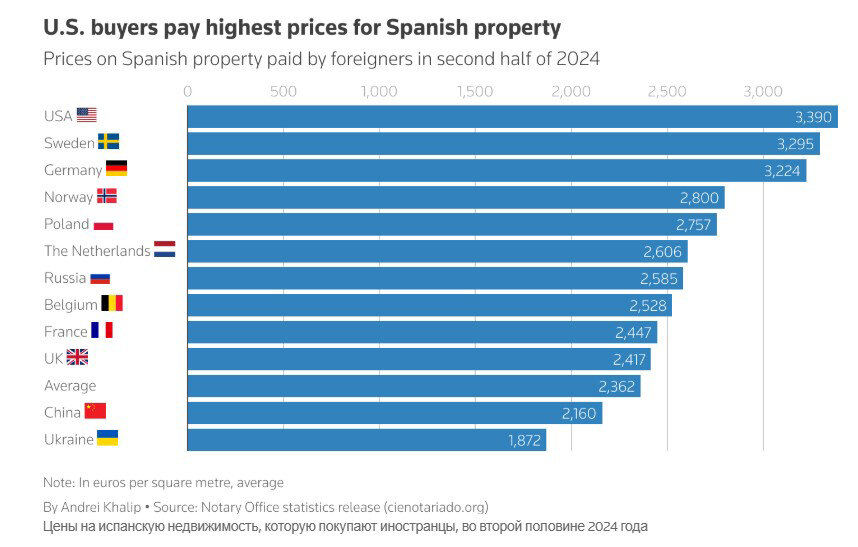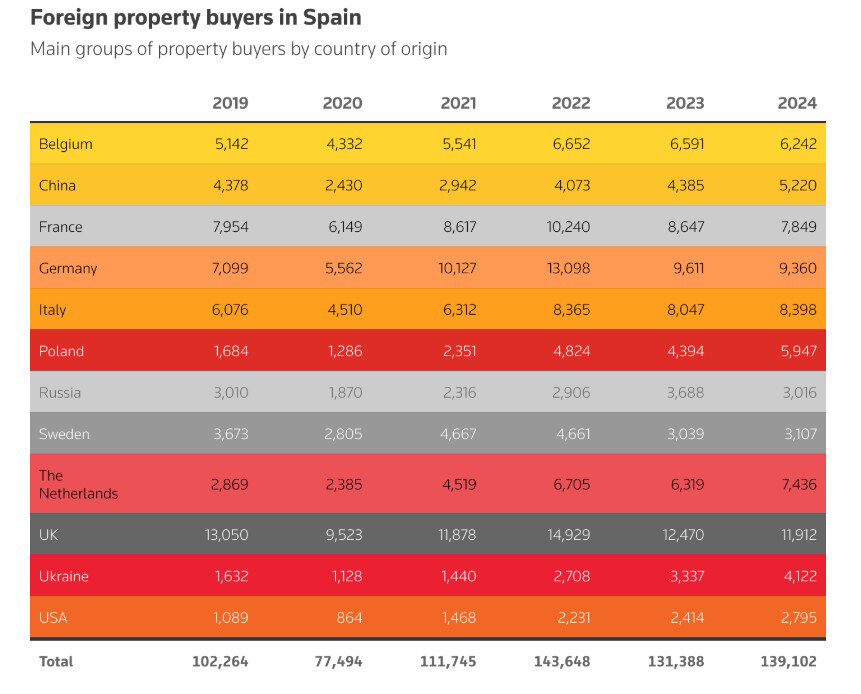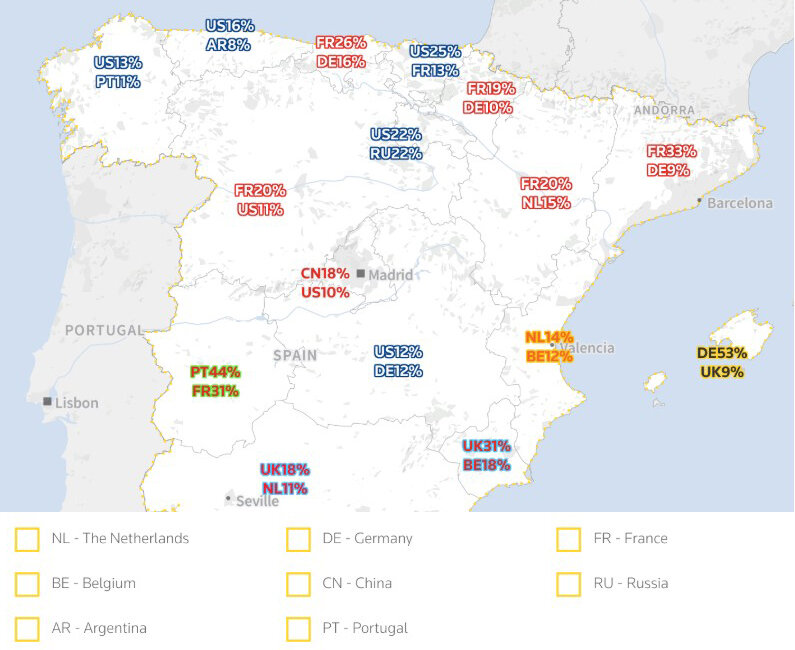Americans Buying Property in Spain at Record Prices

In 2024, the United States topped the ranking of foreign buyers in Spain in terms of price per square meter, according to Reuters. On average, Americans paid €3,390 per square meter—nearly 30% higher than the price paid by British buyers, who have traditionally been the most active foreign group in the Spanish property market.
Foreign buyers accounted for 20% of all property transactions in Spain, paying an average of €2,362 per square meter, while Spanish citizens paid €1,713. Following Americans in the price ranking were Swedes (€3,295), Germans (€3,224), and Norwegians (€2,800). The lowest average prices were recorded among Chinese buyers (€2,160) and Ukrainians (€1,872).

Foreign Buyer Statistics
The total number of foreign property purchases in Spain in 2024 reached 139,102, Reuters reports. While Americans made up only 2% of this number, their activity has grown more than fourfold over the past five years. Meanwhile, British interest has gradually declined, dropping from 12% in 2015 to 8.5% in 2024.

According to the Spanish Land Registry, 92,958 transactions involving foreign buyers were recorded in 2024, a 6% increase compared to 2023 and 38% higher than the 10-year average. However, a slight decline in activity was observed among key groups: British purchases dropped by 2%, German deals fell by 2%, and French purchases declined by 14%. On the other hand, Polish buyers increased by 36%, Dutch buyers by 18%, and American buyers by 13%. Meanwhile, demand from Norwegians fell by 63%, and from Russians by 17%.
Despite declining activity from some foreign groups, housing prices in Spain continued to rise. In 2024, the average property price increased by 11%, marking the second highest growth rate in the EU after Portugal. Price growth was even more pronounced in regions popular among foreigners.
Why Are Americans Interested?
Compared to five years ago, U.S. interest in Spanish property has surged. Madrid and coastal regions like the Costa del Sol are the top choices for American buyers.

Experts cite several factors. First, between 2022 and early 2024, the U.S. dollar maintained a historically favorable exchange rate against the euro, making European property more affordable for Americans. Even after the dollar weakened, many had already locked in deals at peak rates.
Second, Spain offers an appealing combination of mild climate, high quality of life, and rich cultural heritage. This especially attracts Americans of Latin American descent, who find cultural and linguistic familiarity in Spain.
Francisco Cerezo, a partner at U.S. law firm DLA Piper, notes that this mix of affordability, weather, and culture makes Spain particularly attractive. Some clients also see purchases as a potential step toward relocation.
Luis Valdés, head of residential at Colliers, adds: “American buyers believe Madrid is still undervalued compared to other European capitals and see room for further price growth.”
Market Challenges
Amid rising home and rental prices and limited housing supply, Spain saw mass protests in April 2025. Tens of thousands took to the streets in over 40 cities, including Madrid, Barcelona, and Valencia, demanding housing market reforms. In Madrid alone, over 150,000 protesters gathered.
Protesters called for action against speculation, short-term rentals, and resident displacement from city centers. Similar demonstrations have occurred in recent years.
In response, authorities have introduced new measures. In April 2025, Spain formally ended its “Golden Visa” program, which granted residency permits for property investments of €500,000 or more.
Several cities imposed restrictions on short-term rentals. Malaga implemented a moratorium on new tourist rental licenses in 43 neighborhoods where such rentals exceed 8% of housing stock. Madrid banned short-term rentals in apartment buildings without a separate entrance. Barcelona plans to phase out short-term rentals entirely by 2028. Owners challenged the ban in court but lost.
Starting July 2025, all rental properties in Spain must be registered in a government database with an individual ID number. Owners in multi-unit buildings must secure majority approval from residents before renting. Platforms like Airbnb must list the registration number and share data with authorities. Violations could incur fines up to €600,000.
For investors, these rules may reduce rental income and lower resale potential. Yet experts stress that the main cause of Spain’s housing shortage is not foreign investment but chronic underbuilding. According to Spain’s National Statistics Institute, from 2021 to 2023, about 777,000 new households were formed, while only 273,000 new homes were built.
Подсказки: Spain, real estate, property, Americans, housing market, investment, foreigners, short-term rental, golden visa, EU property trends








